Sometimes saying nothing is the key to good marketing
Costa Coffee has scored a bit of an own goal. In their attempt to “celebrate the diversity of their customers, team members and partners” they decided putting a mural on the side of their vans showing a transgender person with mastectomy scars was a good idea. It wasn’t.
Instead, they faced a backlash, with the image seen as glamourising mastectomies rather than celebrating diversity. And when a cabinet minister throws in their two-penneth warning businesses to stay out of politics and to focus instead on providing high-quality products and services, you know you’ve probably got it wrong.
That’s not to say brands shouldn’t support social issues or comment on real-world events but as we’ve discussed before, if you’re going down that route, always remember who your customer is and what your brand stands for. And above all else read the room! Just because you think it’s a good idea to say something, doesn’t mean it is.
We take a look at some of the recent social events which have seen most brands fail spectacularly in their marketing efforts.
How not to mark the Queen’s death
As we approach a year since the death of the Queen, it’s interesting to look back on how brands paid tribute to her, and let’s just say, they shouldn’t have bothered. From Playmobil’s toy queen to Thomas Cook wishing her ‘Safe travels’ (words fail us!), it felt like many were just jumping on the Queen is dead bandwagon.
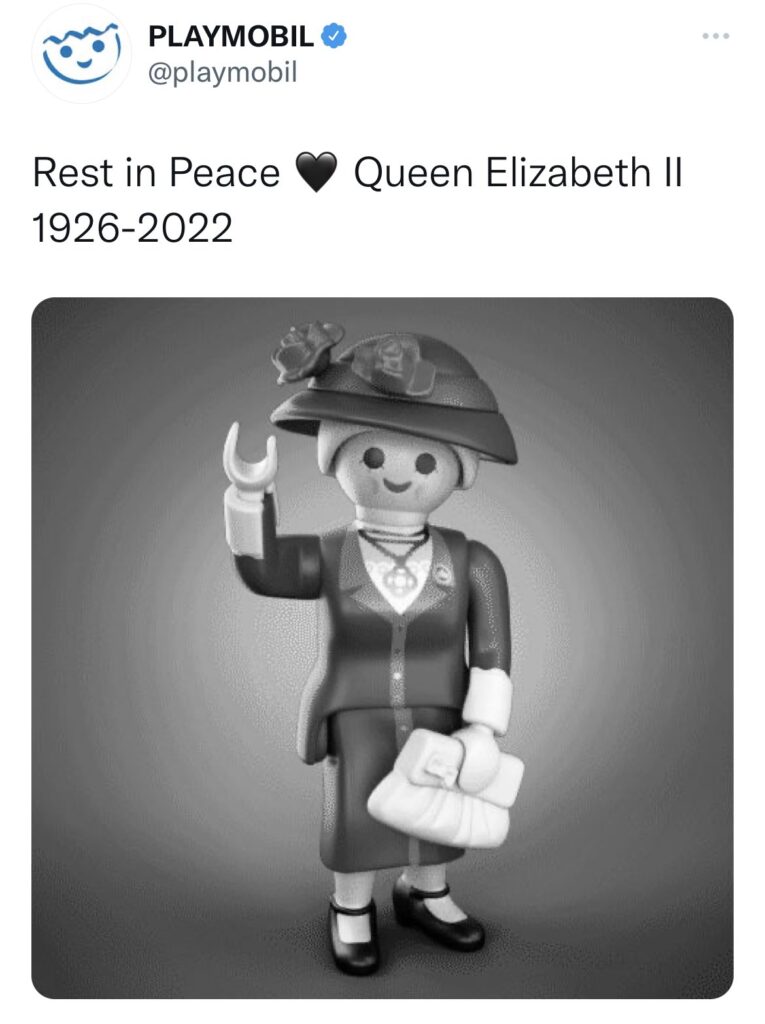
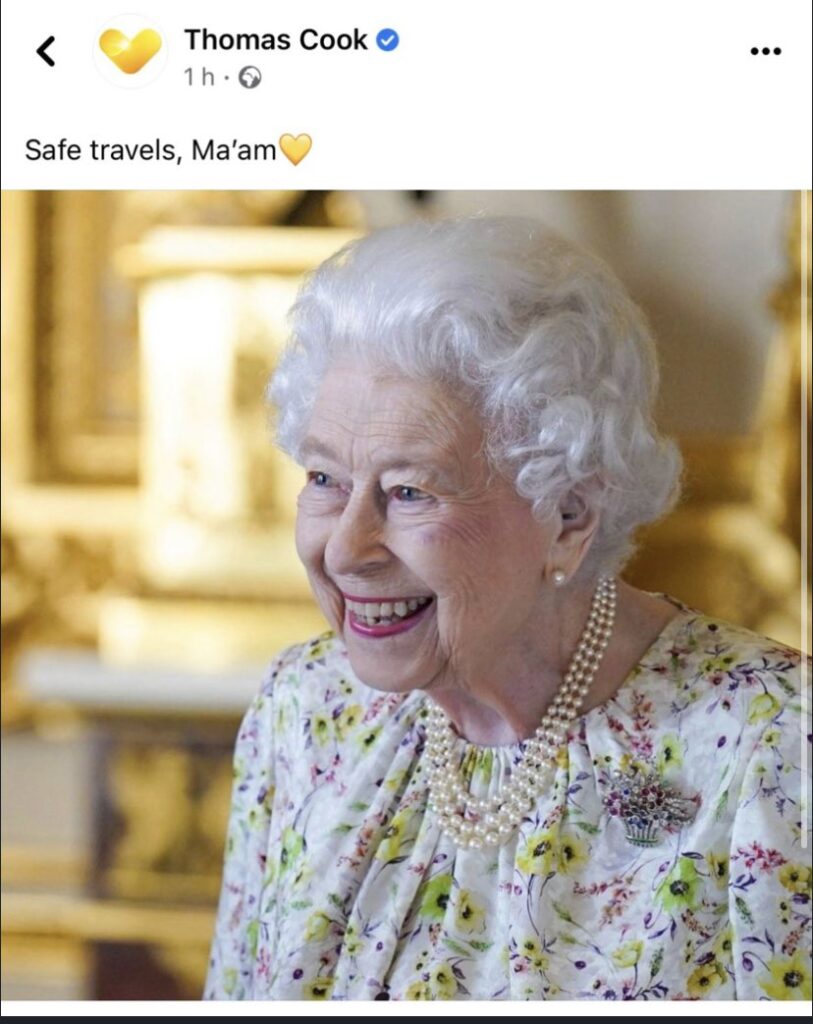
And possibly one of the most tone-deaf tributes was from the founder of Ecotricity, who decided photoshopping their logo onto a picture of the Queen made for a perfect tribute. Yep, you read that right. They honestly thought the best way to show their respect was to use the Queen herself to promote their business. Classy!
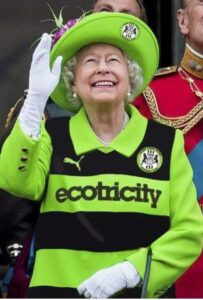
Of course, some brands did go for simple messages, such as Dominos and Heinz, but even they faced a backlash, as the real question they should have asked themselves was – would anyone have really cared if they did nothing?
Did we really need a tribute from Crazy Frog? Yep, that annoying ringtone from 20 years ago, who incidentally is a FICTIONAL character. Or from, wait for it, The British Kebab Awards? Probably not, but on the plus side, at least now we know they exist. Good marketing? Not so much!
Try to avoid pinkwashing
There has been a lot of brands promoting their support for the LGBTQ+ community over the last couple of years, and while that should be applauded not all of that support has gone down particularly well.
Bud Light takes the dubious award for the most spectacular way to crash and burn, when, after using transgender influencer Dylan Mulvaney in its advertising, the backlash saw it lose its position as the top-selling beer in the US after a whopping two decades. And close runners-up are Nike who used the same influencer to promote their women’s sports bras and, yep, you guessed it, Costa Coffee.
And then of course there are all those brands who are happy to jump on the Pride Month bandwagon by ‘just putting a rainbow on it’. Listerine, Budweiser, and even the US Marines have gone down that particular route and been called out for their actions.
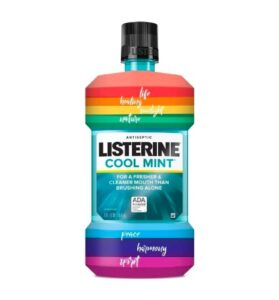

It’s hardly surprising then, that less than 10% of people believe brands are sincere in their support of LGBTQ+ events and think they are only doing it to enhance their own public image.
And this goes back to what we said right at the beginning – make sure whatever marketing you do is meaningful and sits with your brand’s ethos.
Skittles are a rare example of a brand getting it right. Over the last few years during Pride Month, they have changed the artwork on their packs for original designs by artists from the LGBTQ+ community with $1 from each pack going towards GLAAD, an organisation which focuses on how the community is represented in the media.
But for Skittles this isn’t a one-off activity. Celebrating each other’s differences is at the heart of their brand, and they have been working with partners in the LGBTQ+ community for almost a decade. This isn’t about pinkwashing, but rather a brand being fully committed to showing support in the right way. Other brands would do well to take note.
Exploiting hardship is not a good idea
COVID, the cost of living crisis – the last few years have been trying for everyone, but the good news is – brands have got our backs! How would we have survived all the lockdowns without knowing BA loves us all or that Waitrose are there for us?
Obviously, some brands got it spot on during the pandemic, most notably Budweiser with their reimagined lockdown Whassup ad,
but most seemed to be following a template ‘for how to make a COVID-19 ad’ , as this compilation delightfully illustrates.
And more recently there have been the inevitable cost of living crisis ads. Is Britain really counting on MoneySuperMarket or is it just a depressing reminder of how expensive things are? And is finding someone to share your energy bills with really a credible reason to sign up to a dating app?

While brands may feel the need to acknowledge our current trials and tribulations, is it what consumers really want? In a word, no. Recent research found only 24% of UK adults agree brands have the credibility to focus on the cost of living in their advertising. And that’s partly because people are expecting brands to increase their prices, because of, yes you guessed it, the cost of living crisis.
The one group that do seem to be hitting the mark are charities. This great billboard from Shelter highlights how the government could be doing more to help with housing,
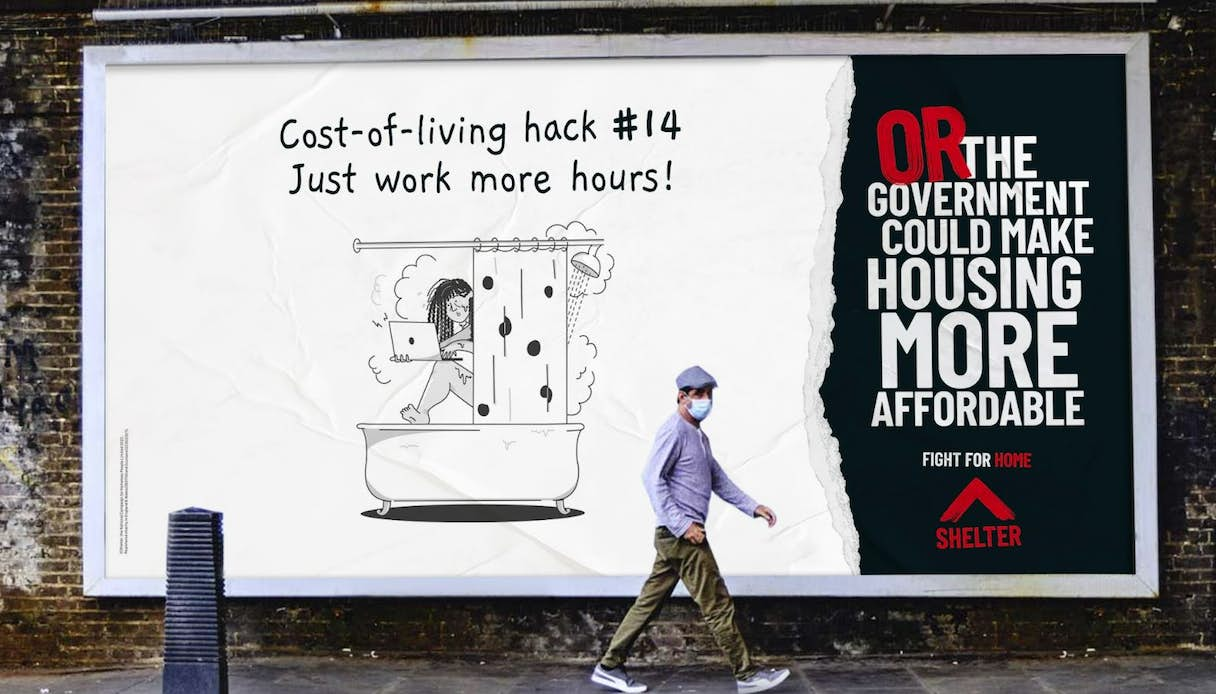
while Scope highlights the devastating impact rising costs is having on disabled people in this heart-wrenching ad.
The bottom line is brands should think twice before they embark on any marketing campaign, especially one that is linked to a current social, cultural, or political issue unless it’s something they are truly passionate about. Also, it would be good for brands to remember, most of us simply don’t care if they are ‘there for us’ or not, and we definitely don’t want to be reminded of how difficult things are at the moment. n fact, we’d go as far as to say that sometimes the best thing brands could do, is say nothing at all.
